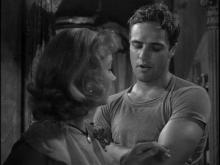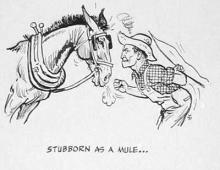Here is a postmodern summarization of Edgar Allen Poe's seminal work, "The Raven," with the forced words replaced. I will replace the narrator with a large man in dark sunglasses and a douchey, curled mustache. Lenore will be replaced by a dark haired girl the large man was pissed about because he didn't get her number. The raven will be replaced by a talking slab of bacon. Finally, the repetition of the word "Nevermore" will be replaced by the phrase "99 cents." Now, an exercise in ruining Poe's beautiful work:
The scene was midnight on a dark night in the large man in dark sunglasses and a douchey, curled mustache's study. In the first stanza, he was reading quietly when he heard a “tapping at his chamber door.” The large man in dark sunglasses and a douchey, curled mustache convinced himself the tapping was only a visitor.
Soon, the reader learns why the large man in dark sunglasses and a douchey, curled mustache was afraid of the tapping on his window. In a December past, the large man couldn't get a beautiful dark-haired girl's number, no matter how hard he tried. Ever since that night, the large man buried his sorrows in reading. He was afraid that the dark-haired girl the large man was pissed about because he didn't get her number! was haunting him in his chamber. The “rustling of each purple curtain” scared him to death. He had to convince himself the tapping was a visitor and not a ghost.
In the next stanza, the large man in dark sunglasses and a douchey, curled mustache gathered his courage and opened the door, apologizing for not opening it sooner. The space outside the door was empty. He became very frightened then. He was sure the dark haired girl the large man was pissed about because he didn't get her number’s! memory tapped on the door, and he called what he thought was her name was (Julie? Sarah?) in the darkness.







